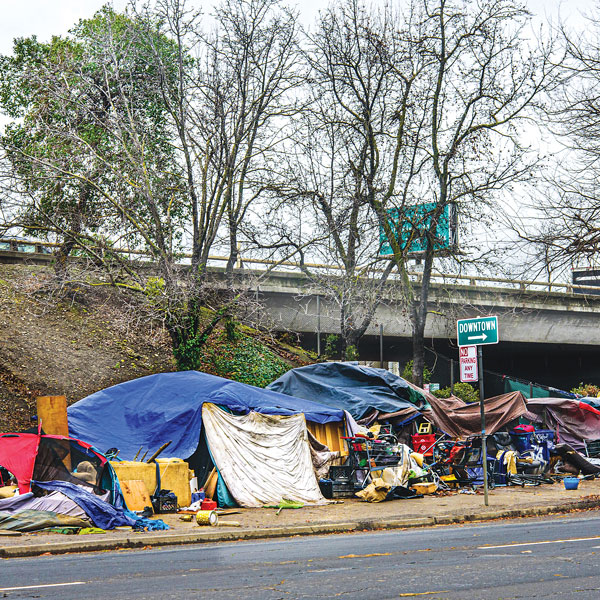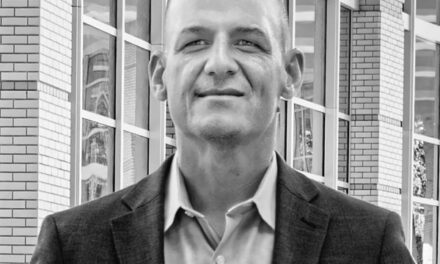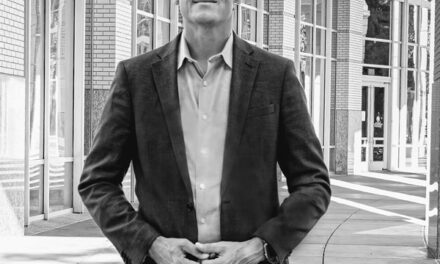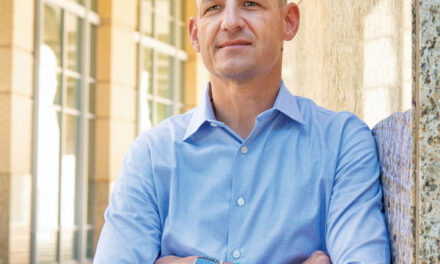Like a truck speeding downhill with imbalanced brakes, the plan by Mayor Darrell Steinberg to cure homelessness by giving a roof to every unsheltered person is poised to jackknife and skid out of control. The rubber is already starting to burn.
The Steinberg plan, revealed in January, rests on three cornerstones. First, the proposal requires all eight City Council districts to identify and prepare shelter sites for homeless people. This expectation spreads the pain and creates a veneer of egalitarian sacrifice.
Second, the proposal is designed to limit neighborhood objection. Sure, City Hall is conducting outreach. But Steinberg envisions one decisive City Council vote in June to launch his $100 million housing balloon. It’s all or nothing.

Third, while the mayor’s plan makes vague reference to support services for the many homeless people who struggle with addiction and mental illness, the focus is elsewhere. The emphasis is on building shelters for people at city expense, with no accountability, expectations or messy strings attached. It’s a massive handout.
With workshops and community meetings underway, the Steinberg proposal is gaining momentum. The sad part is, the plan is already outdated and obsolete.
It embraces a concept designed for 2019, when the principle of “housing first” enlightened many politicians. Housing first means you eradicate homelessness by creating more homes. It’s optimistic but doomed to fail. Here’s why: It’s far easier to create a homeless person than build a house for one.
In 2021, as the world emerges from COVID-19, the homeless crisis is excruciatingly worse than it was two years ago. The new incubator of homelessness isn’t the familiar scourge of addiction and mental illness.
And the solution isn’t a fantasy of council districts churning out taxpayer-funded housing units—sheds, tiny houses, trailers, homeless hotels, safe ground campsites and special parking lots where people can live in vehicles.
The solution is jobs.
Don’t take my word for it. Earlier this year, the Economic Roundtable of Los Angeles published an exhaustive, data-driven report called “Locked Out.” It’s sober reading.
“Locked Out” says California will soon experience a rush of Pandemic Recession homelessness. The COVID-19 economic crash will expand the state’s homeless numbers by 68 percent through 2023. Los Angeles will be tragically impacted, with chronic homelessness increasing by 86 percent. Sacramento may not suffer quite so awfully, but the city will tremble.
Academic researchers and policy experts who prepared “Locked Out” say the catastrophe will be propelled by key factors: unemployment, low wages, evictions, housing barriers caused by high rents and expensive real estate.
The newly homeless will not be the drug addled, mentally ill guy we see screaming to silent demons at 12th and J streets. They will be cooks and hair stylists and store clerks and custodians. Many will be Black or Latino and female.
The authors urge city, county and state leaders to invest in methods to restore the marginally homeless to self-sufficiency—jobs programs, higher minimum wages and rules requiring stable work conditions.
Local governments can hire economically at-risk workers for childcare, tutoring, building repairs, construction, transportation and infrastructure projects. Opportunities abound.
Imagine the impact if the City Council invested $100 million in jobs for people made under-employed by the pandemic, rather than $100 million for homeless shelters. In its current form, the mayor’s plan offers no mechanism for creating jobs.
The invisibility of jobs in the Steinberg proposal is no accident. In modern discussions about the homeless crisis, to link the words “housing” and “work” is political heresy. Chronically homeless people are not considered capable of work. There’s no expectation they might break a sweat for their free shelter.
People made homeless by the Pandemic Recession are another story. They held jobs. They want to work. They don’t require endless cycles of expensive intervention. They just need a steady paycheck.
In March and April, the City Council will hold workshops to review sites for the mayor’s homeless camps. Residents might think about turning those workshops into job generators. Otherwise, a sincere but doomed $100 million housing idea will jackknife across the city.
R.E. Graswich can be reached at regraswich@icloud.com. Follow us on Facebook, Twitter and Instagram: @insidesacramento.















